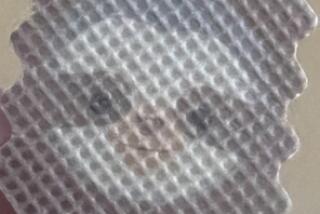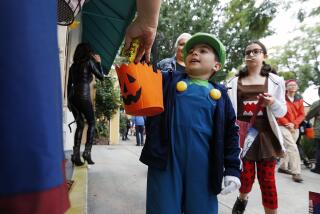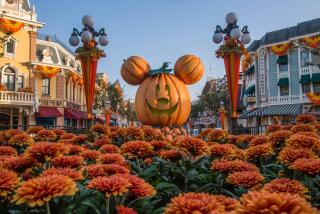For the Teachers, Trick Is on Them : Schools: Too many treats are blamed for students’ day-after-Halloween ‘antsy’ behavior. But physicians say sugar ‘hangovers’ are not the reason.
- Share via
For children, it was the morning after a fine and memorable evening. For their teachers, Wednesday was the worst day of the year.
“They’re like adults with hangovers,” said Mesa Verde Preschool director Karen Mestemacher, who like others were coping with the effects of too much Halloween. “They’re antsy; they can’t settle down,” she said of the 2- to 5-year-olds who had been trick-or-treating the night before. “Tempers seem to be short. In the yard, there are more minor accidents.”
Instead of two-hour naps, the toddlers’ eyes were wide open after 45 minutes. “Needless to say, it’s a zoo around here,” she said.
The culprit, teachers believe, is the ultimate joy of Halloween--sugar.
“Many have candy along with breakfast. They bring candy for snack. They have candy for lunch,” said Kathleen Pommer, a teacher at Turtle Rock Elementary School in Irvine. “They come in on a high. Before recess, they’re really down. At recess they have more candy and they’re high again. By lunch, they’re pretty well down.
“It’s a roller coaster.”
Some just wrote the day off.
“It’s a common joke in teaching,” said Diane Moline, a teacher at Taft Elementary School in Orange. “It’s the kind of day you do a lot of PE.”
Some reported a slightly higher degree of absenteeism. “One mother who kept her daughter home described it to me,” Mestemacher said. “She said: ‘You wouldn’t want her around today. She’ll see you tomorrow.’ We thanked her for that.”
However, despite the common wisdom that blames sugar highs for hyperactivity, physicians and researchers said scientific studies have yet to prove the link.
Dr. Grant Gwinup, professor of endocrinology at UCI College of Medicine, called the idea that sugar causes hyperactivity an “old wives’ tale.” While he admitted the caffeine in chocolate may be stimulating, he said, “you’re dealing with mythology rather than scientific medicine.”
Similarly, Dr. James Swanson, a psychologist and specialist in hyperactivity at UC Irvine’s Child Development Center, said: “The bottom line is that parents keep reporting sugar affects behavior and studies have failed to document that. It may be things other than sugar that are (causing) the effects.”
Some studies have suggested that food dyes or caffeine may be responsible, he said. Others speculate the effect may be psychological. “Children are getting excessive rewards all at once,” Swanson said. “If you gave toy trucks instead of candy, the same thing may happen.”
Some teachers accepted partial responsibility.
“It’s one of the teacher’s favorite holidays as far as stuff you can teach,” Moline said. “The younger kids are very excitable and teachers do a lot more Halloween stuff with them. So in a way, we build the excitement.”
But still, the teachers said it would help if parents curtailed the candy their children consume.
“Maybe if parents had 30 children in their house for six hours, they would think twice before they allowed them to have that candy,” Pommer said.
More to Read
Sign up for Essential California
The most important California stories and recommendations in your inbox every morning.
You may occasionally receive promotional content from the Los Angeles Times.










